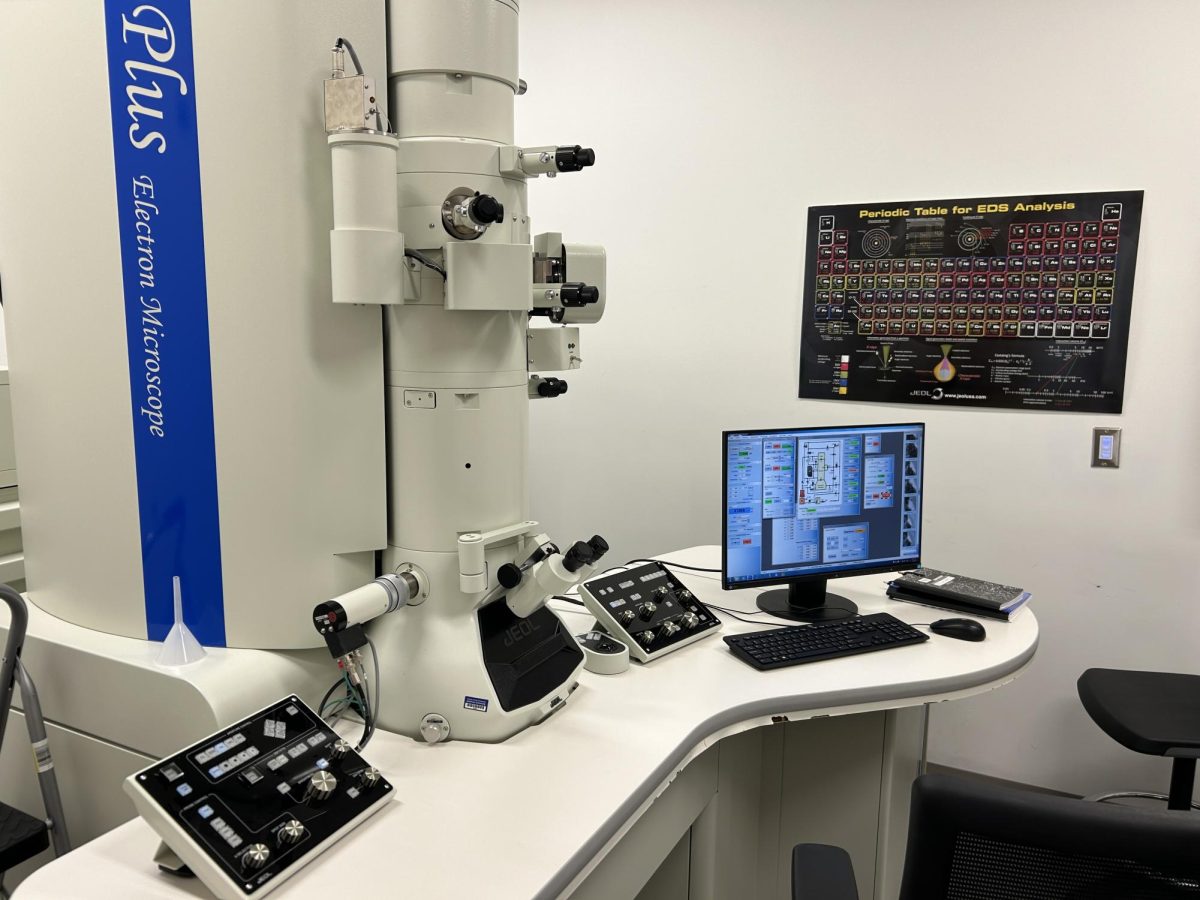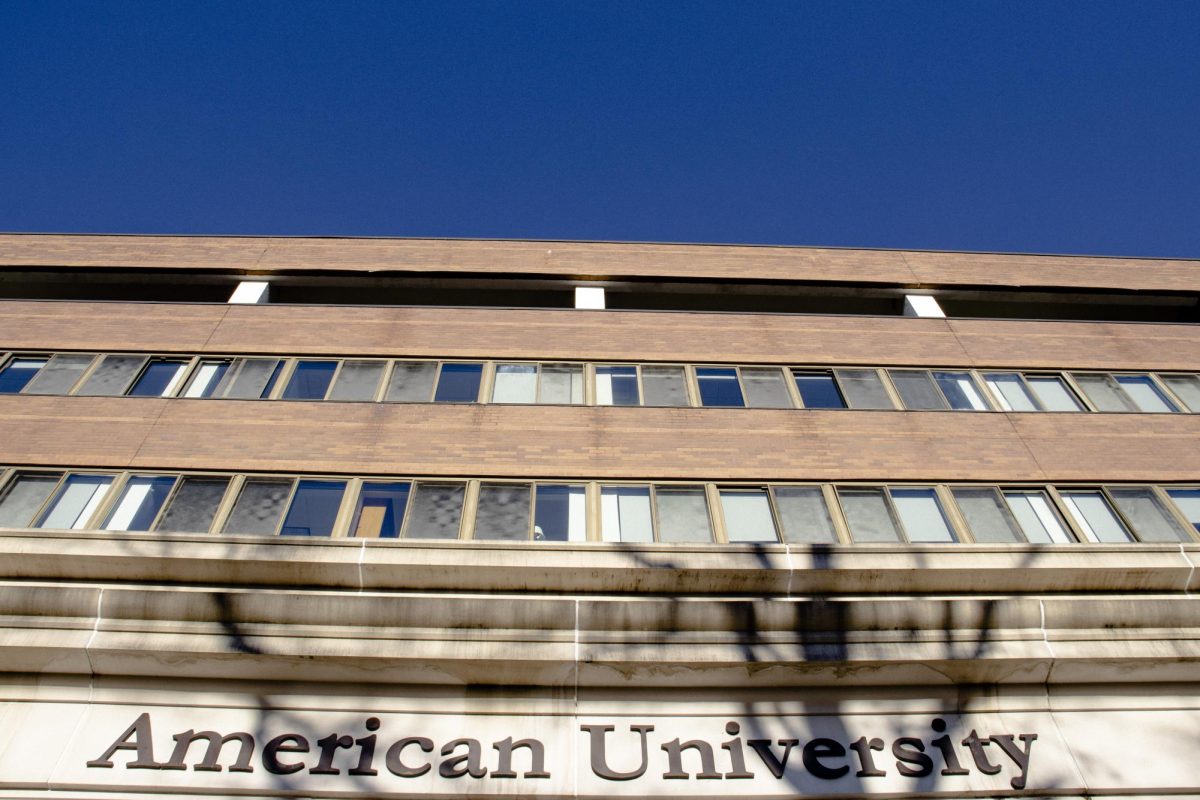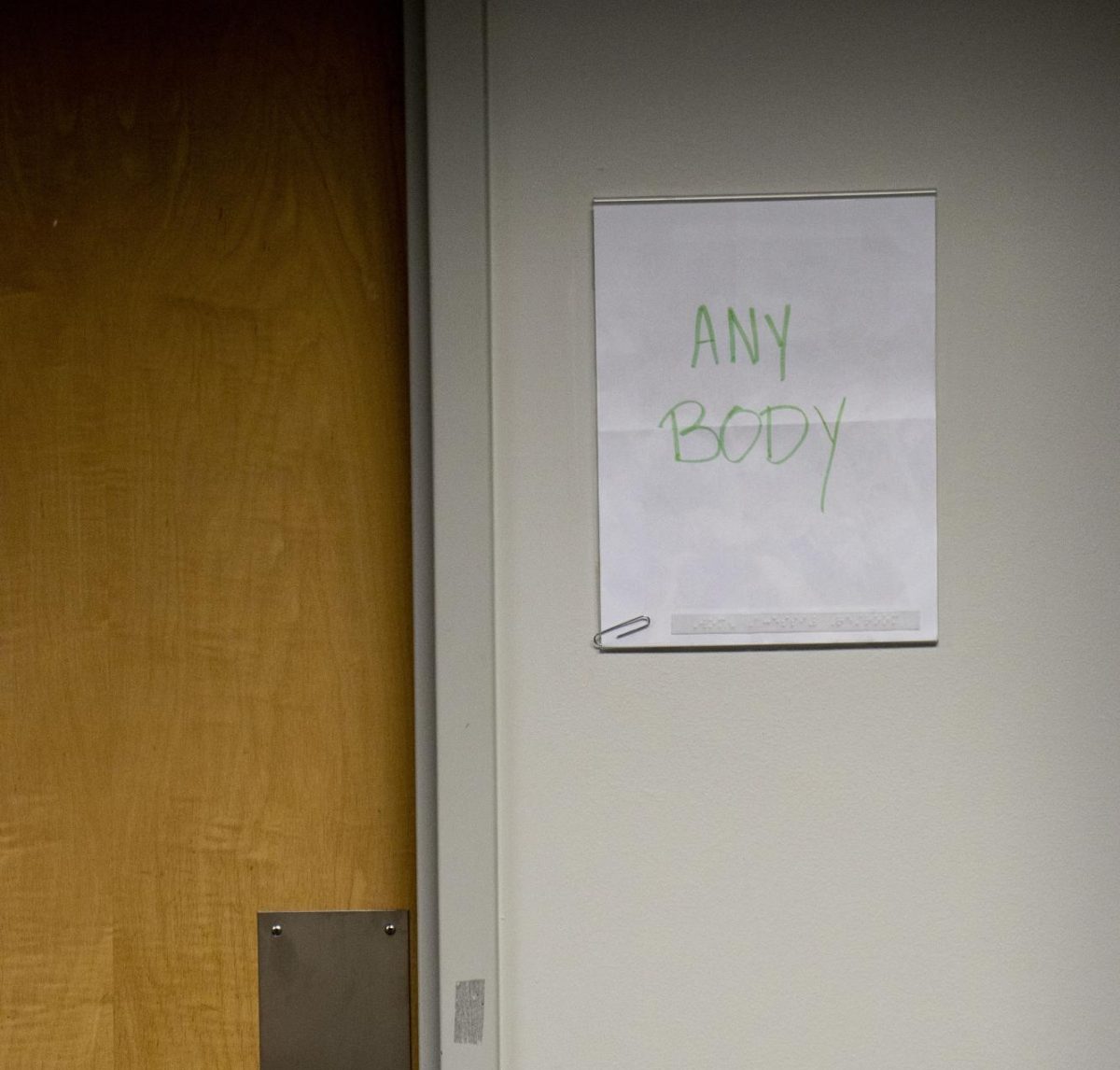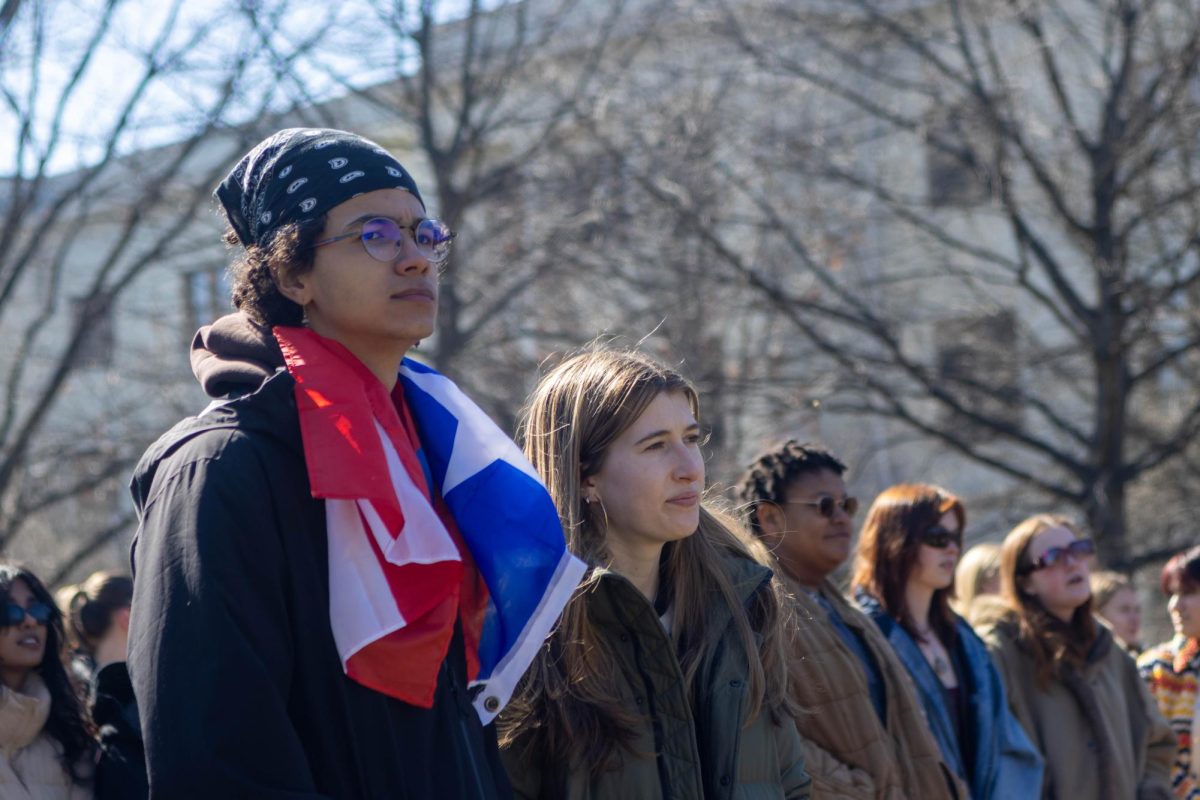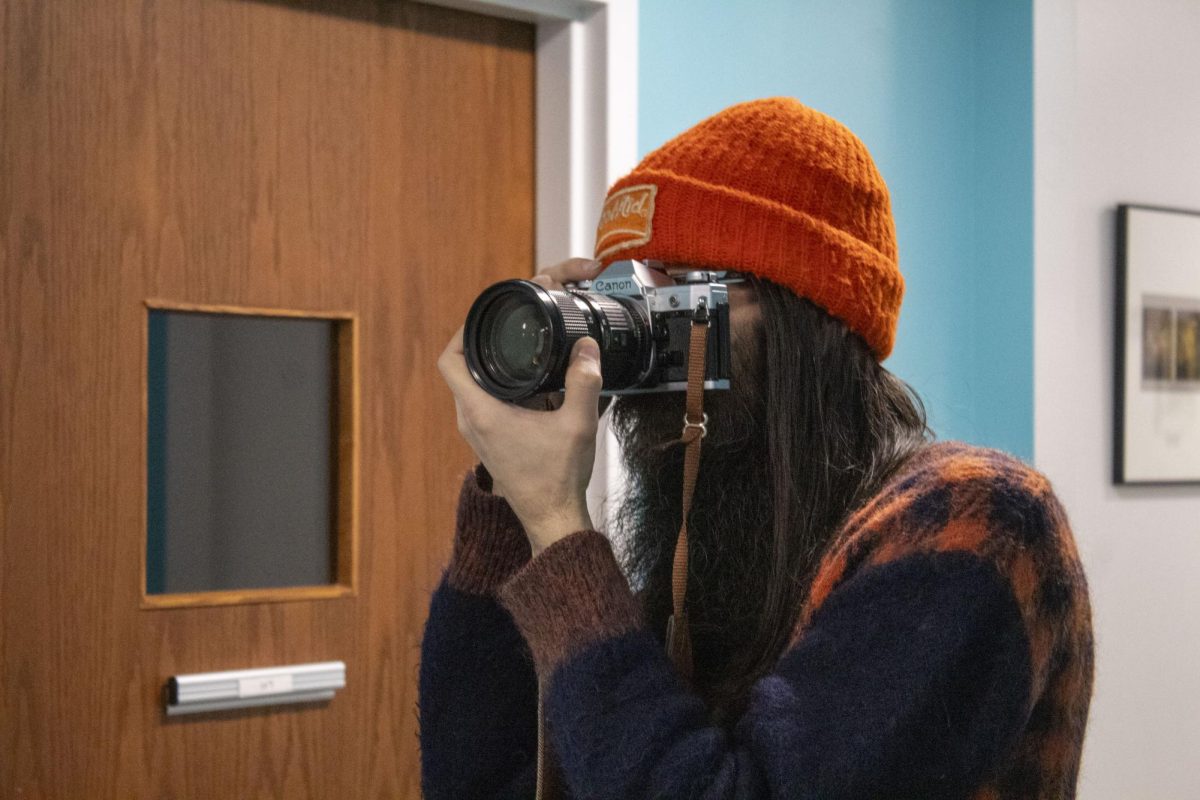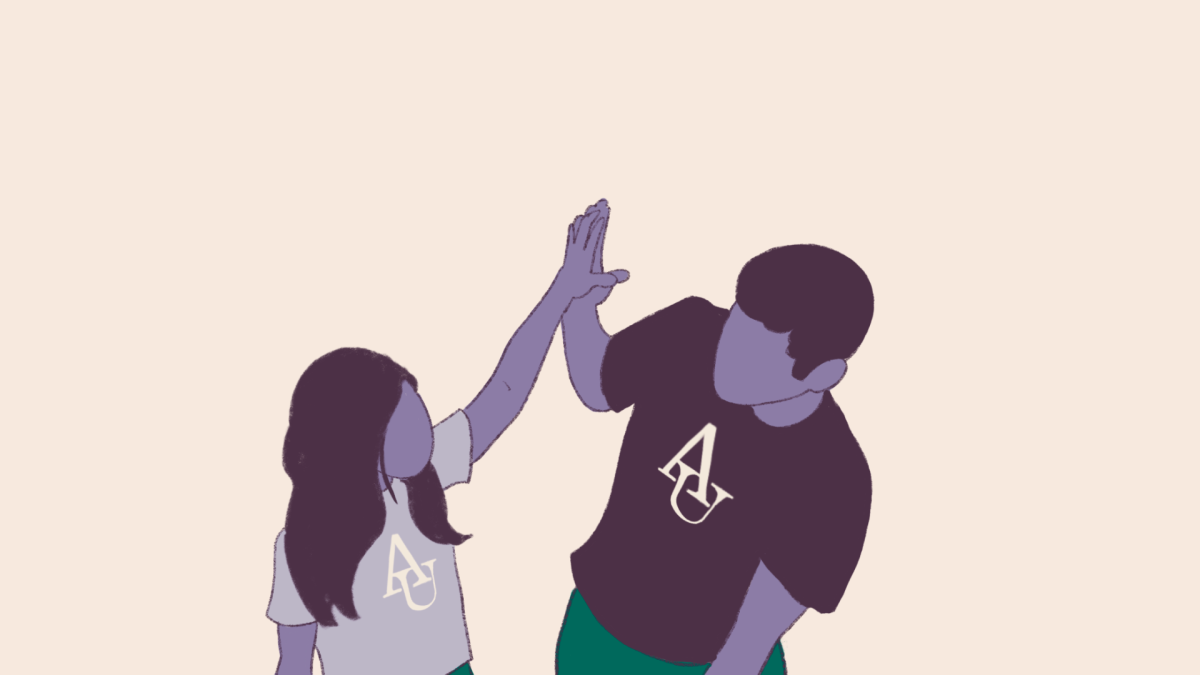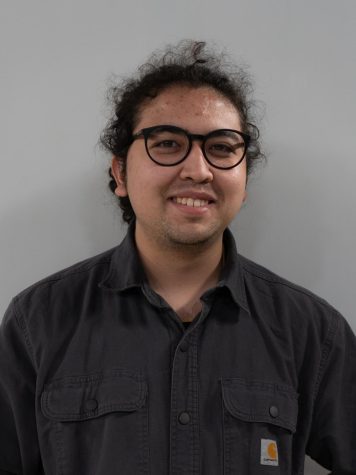Note: To avoid confusion, an author of this article is Audrey Hill. A source used in the article is named Aubrey Hill.
Zein El-Amine, an adjunct in the College of Arts and Sciences at American University, says the campus community is like no other.
“I love AU most of all,” El-Amine said. “The students at AU are amazing and I feel at home there.”
But being an adjunct professor at AU, he said, just isn’t sustainable. “I can’t live in Washington, D.C. on those wages,” El-Amine said. “So actually, I’m going to have to leave.”
El-Amine is one of the lead negotiators in the adjunct union at AU, which is part of the Service Employee International Union Local 500, the Washington, D.C. and Maryland division that’s affiliated with the larger SEIU, a union with over 2 million members nationally.
In protests organized by the SEIU Local 500 throughout early October and November, AU faculty and staff voiced their frustration at inadequate salaries, stagnant raises, few opportunities for advancement and an administration they said has been unreceptive to union concerns.
“It’s very hard to climb up the ladder,” said Geneva Walker, who works at the AU Washington College of Law Library staff and is an AU staff union member. “No matter how much work you get, you’re not acknowledged.”
Those protests were part of a larger process between union organizers and the university administration: a series of negotiations called collective bargaining that settle disputes over wages and labor conditions. The process is supposed to end in compromise, but historically, the structural power that employers have over workers has often led to an uneven playing field.
SEIU Local 500 has three sub-sections on AU’s campus: adjuncts, graduate student workers and staff, all of which are part of the larger AU unit. While they are part of the same union, the bargaining process for each of the three units is in different stages, as each involves different considerations and the groups voted to certify at separate times. The academic affairs unit was the latest to join, voting to certify in October of 2020. The adjuncts began negotiating this past spring.
While protests are often organized by unions to garner public sympathy during this process, Mark Gisler, a lawyer with the law firm Peer, Gan & Gisler who handles these types of cases for unions, said it’s possible to have “low drama” negotiations where unions don’t feel the need to protest.
Protesting often happens more in newer management-union relationships, he said, and when employers are more reluctant to engage in bargaining.
The situation facing adjunct faculty at AU is indicative of a larger trend within higher education, as universities become increasingly reliant on non-tenured faculty to teach classes. This is tied to another issue: there are more students getting PhDs than there are tenure track positions available.
At AU, some adjuncts describe a “revolving door” of part-time educators that has fostered a toxic internal culture.
Erica Lesto, an adjunct professor in the sociology department and a union member, said it feels as though the administration sees her and her peers as expendable.
“This is how we all feel,” Lesto said. “But no one’s gonna speak out about it because we’re afraid we’re going to get fired.”
Some adjuncts have full-time jobs that they can rely on for their main source of income, while teaching classes on the side. But many others say the lack of full time positions available mean they are forced to find other work.
Lesto said that because she taught three classes this semester, the university won’t let her teach next semester. The university maintains this policy because teaching any more classes, “would require a transition to full time faculty status,” Bennett said.
That full-time status, however, is exactly what Lesto wants. As of now, Lesto said, the class limit means that she, like many of her peers, was forced to find additional work.
“I’m 40 years old.” Lesto said. “I’m tired. I don’t want to work multiple jobs anymore.”
El-Amine said that because his pay is so little, he also had to teach classes at two other colleges in the area. George Washington University paid him $2,000 more than AU for teaching a three credit course.
Matthew Bennett, AU’s chief communications officer, said in an email that AU offers “competitive compensation.”
Wading into negotiations
The university’s goal in these negotiations is a contract that will align with “strategic and budgetary priorities, advance our commitment to our students, treat all employees fairly and equitably, maintain our competitiveness in the higher education marketplace, and contribute to our mission,” Bennett wrote in an emailed statement.
To reach that goal, Bennett said the university is considering how different proposals would affect factors involving operational, budgetary and equity concerns as well as legal requirements.
AWOL tried to reach members of the administration’s bargaining committee, but they referred questions to Bennett.
Gisler said determining whether parties in negotiations are acting in good faith depends on the proposals being submitted and the progress made on them, as well as the frequency of meetings between the two sides.
But union organizers on campus say the university has quietly attempted to undermine staff and faculty unions as they engage in contract negotiations, all the while keeping up a progressive facade.
“Every time they come to the table, they are not prepared,” said Walker.
Aubrey Hill, a systems administrator in AU’s career center, a member and negotiator at the adjunct union, said the administration sends their proposals to organizers “five minutes” before meetings. Yet she said organizers have sent the administration “like 20 proposals, weeks to even months ahead of time that they just ignore.”
“Written proposals are shared back and forth by both parties and then discussed in the subsequent bargaining session…there is no set schedule for exchanging proposals,” said Bennett. “When the union has requested a meeting, the university has agreed.”
Gisler said that contract negotiations can take anywhere from hours to years. While Bennett said in his statement that the length of the current negotiations with the university are normal, organizers see the administration as dragging its feet, which they argue is a part of a larger tactic designed to make staff lose faith in unionizing.
In 2020, WAMU organizers said they had similar issues with AU in their interactions.
Organizers also say that negotiations began to stall when the university hired Louis Cannon as their lead negotiator, a lawyer who has a record of victories over union demands in negotiations with management. Cannon is a labor and employment attorney in the Washington office of the law firm Baker Hostetler.
“The grads and adjuncts have been making steady progress on wages over the past few years with their contracts,” Hill said. “And all of a sudden, [AU officials] hire Louis Cannon, and they’re like, ‘we’re offering you nothing. We’re offering you .6% of a raise.’”
The university said that it maintains productive relationships with organizers on campus.
“Employers often choose to be represented by counsel with experience in these types of legal and regulatory matters,” Bennett said, “just as staff can choose to be represented by a union with experience.”
Going forward
Organizers said they are energized by the current wave of post-pandemic union activity.
David Jacobs, an adjunct in the management department and one of the adjunct union’s main negotiators, said the union is pushing the university to reimagine what it means to be an adjunct.
“We have, among other things, asked for the development of a new status of salaried part time faculty, who would have more opportunities to teach and more income,” Jacobs said.
Not only would creating such a position give adjuncts more centrality to a particular institution, Jacobs said, but providing such stability would benefit students.
So far, Jacobs said, the university has not responded to this proposal. He attributes this to a reluctance to look past the short term costs of investments that he said would benefit the university in the long term.
“It’s a failure of imagination a little bit, and a focus on immediate cost,” Jacobs said. “They’re willing to consider investments in almost anything but people.”
Jacobs hopes that moving forward, the university will be more receptive to more transformative solutions.
“Universities are always trying to be different from the rest and to stand out in some fashion,” Jabobs said. “What would be nice would be if American University chose to stand out in the way that they treated their employees.”
Ultimately, he said, “They can do better.”


